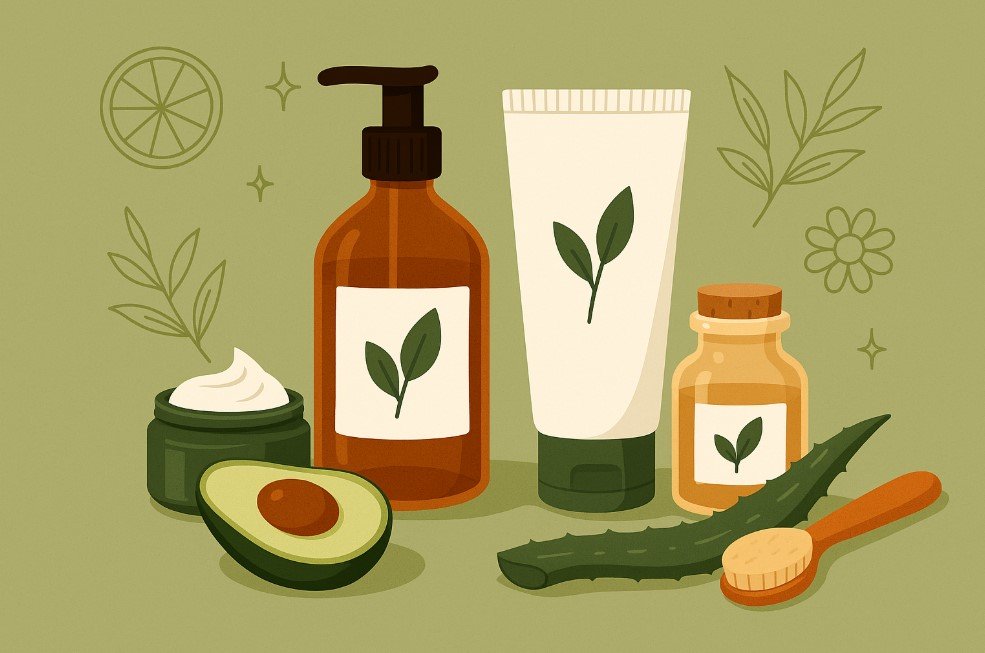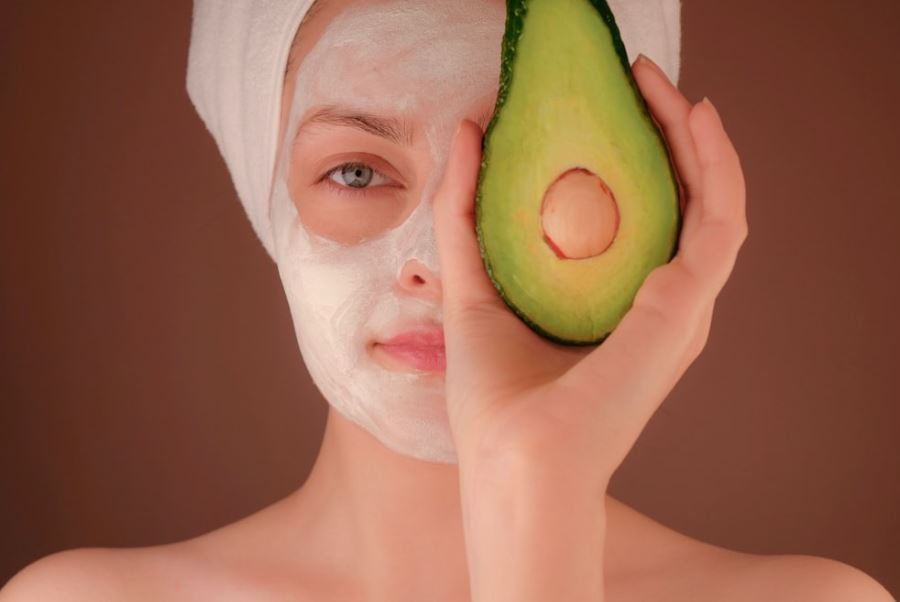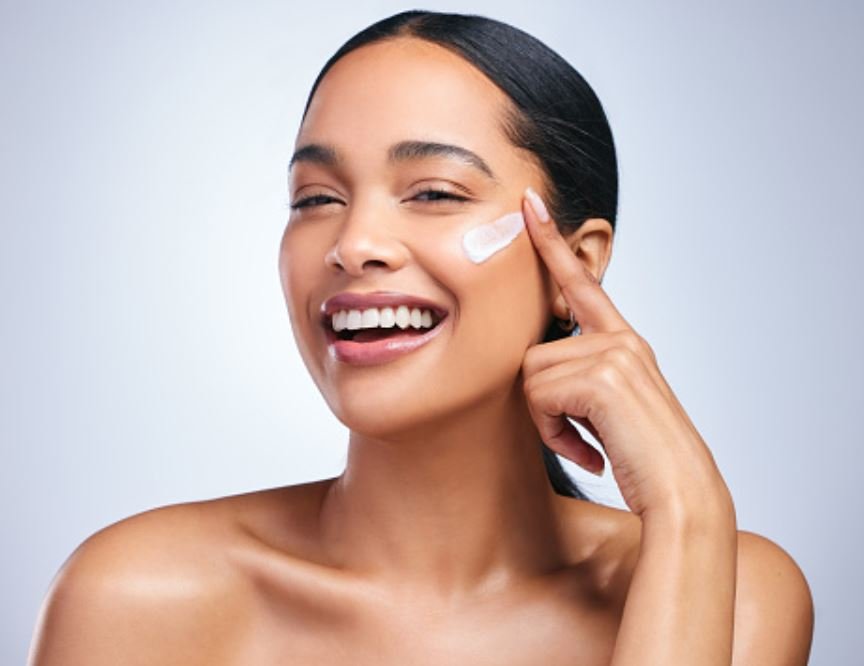
Many people are now choosing natural and organic ways to take care of their skin. A DIY organic skincare routine is a great way to use safe and gentle ingredients while avoiding harmful chemicals. You do not need expensive products or spa visits to keep your skin clean, soft, and healthy. You can start with items found at home or in your local grocery store.
This guide will help you build a simple and effective organic skincare routine that you can follow every day. We will explain the benefits of natural ingredients, how to use them, and which products work best for each step of your routine.
Why Choose Organic Skincare?
Organic skincare uses ingredients that are grown without harmful chemicals like pesticides or artificial preservatives. These ingredients are usually better for your skin and the environment. They are less likely to cause irritation or allergies and are suitable for all skin types, including sensitive skin.
Using organic products also gives you more control over what you put on your face. Many store-bought items have long ingredient lists that are hard to understand. With DIY organic skincare, you know exactly what you are using.
Daily Skincare Routine Steps
A good skincare routine has a few simple steps. The goal is to keep your skin clean, hydrated, and protected. You can follow this order:
- Cleansing
- Toning
- Moisturizing
- Sun protection (for the daytime)
You can also add weekly treatments like exfoliating or face masks for deeper care.
Let’s look at each step in detail using natural and organic ingredients.
Step 1: Cleansing with Natural Oils
Cleansing removes dirt, oil, and makeup from your face. You should wash your face twice a day, once in the morning and once before bed.
Best natural cleansers:
- Coconut oil – Works well to remove makeup and dirt. Use a small amount and wipe with a damp cloth.
- Honey – Raw honey has antibacterial properties and is gentle on the skin. Wet your face, apply honey, rub gently, and rinse off.
- Oatmeal and yogurt paste – Mix finely ground oats with plain yogurt. It helps cleanse and soften the skin.
Use lukewarm water to rinse your face. Hot water can dry out your skin, and cold water may not clean well.
Step 2: Toning with Homemade Toners
Toning helps balance your skin’s pH and tightens pores after cleansing. It also removes leftover dirt.
Best DIY toners:
- Rose water – Soothes and refreshes the skin. You can spray it on your face or apply it with a cotton pad.
- Apple cider vinegar and water – Mix one part vinegar with two parts water. This toner is great for oily or acne-prone skin.
- Green tea – Cooled green tea helps reduce inflammation and is rich in antioxidants.
- Use a toner after every cleanse for best results.
Step 3: Moisturizing with Natural Oils and Gels
Moisturizing keeps your skin hydrated and prevents dryness. Choose the right natural product for your skin type.
Best organic moisturizers:
- Aloe vera gel – Light and soothing, perfect for oily or sensitive skin.
- Jojoba oil – Matches the skin’s natural oils and works for all skin types.
- Shea butter – Best for dry skin. Melt a small amount between your fingers and apply gently.
- Almond oil – Nourishes the skin and helps reduce dark spots.
Apply your moisturizer while your skin is still slightly damp to lock in moisture.
Step 4: Sun Protection (Natural Alternatives)
Sunscreen is very important, even when you are indoors or during winter. While homemade sunscreen is not as reliable, some oils offer mild protection.
Natural options with SPF:
- Red raspberry seed oil – Offers light sun protection
- Carrot seed oil – Contains antioxidants and may offer some SPF
- Zinc oxide cream – Can be added to a DIY lotion for sun protection
For reliable sun protection, consider using a certified organic sunscreen product.
Weekly Skincare Treatments
Besides your daily routine, your skin also benefits from weekly treatments like exfoliation and face masks.
Exfoliating with Natural Scrubs
Exfoliating removes dead skin cells and helps your skin glow. Do this once or twice a week.
Best DIY exfoliants:
- Sugar and olive oil scrub – Mix equal parts and rub gently on your face.
- Ground oats and honey – Soft scrub for sensitive skin
- Coffee grounds and yogurt – Helps reduce puffiness and exfoliates
Rub in small circles, rinse with lukewarm water, and moisturize after.
Natural Face Masks for Extra Care
Face masks give your skin extra nutrients and help target specific issues.
DIY face masks by skin type:
- Oily skin – Clay and apple cider vinegar
- Dry skin – Mashed avocado and honey
- Sensitive skin – Aloe vera gel and cucumber juice
- Acne-prone skin – Turmeric and yogurt
Apply the mask for 10–15 minutes, then rinse and moisturize.
Best Organic Skin Care Products to Try
If you prefer ready-made items, there are many organic skincare products available in stores or online. Look for items that are certified organic, have short ingredient lists, and are free from artificial fragrances, colours, or alcohol.
Popular organic product types include:
- Organic face cleansers
- Herbal toners
- Natural moisturizers with plant oils
- Organic lip balms
- Clay masks and exfoliating scrubs
- Certified organic sunscreens
Some trusted brands offer kits or sample packs so you can test different items before buying full sizes.
Building the Best At-Home Skincare Routine
Creating a routine is easy if you stay consistent. Start with a basic daily plan: cleanse, tone, and moisturize. Use masks and scrubs once or twice a week. Stick with your routine for a few weeks before changing products.
Also, make sure to:
- Drink plenty of water
- Eat fruits and vegetables
- Sleep well
- Avoid touching your face
- Keep pillowcases and makeup brushes clean
These simple steps will help your DIY routine work better.
Benefits of a DIY Organic Skincare Routine
Here are some reasons why many people switch to organic and natural skincare:
- Fewer chemicals reduce the chance of skin reactions
- Ingredients are easy to find and often cheaper
- Custom recipes suit your personal skin needs
- You reduce waste by reusing containers and avoiding plastic packaging
- Homemade products can be fresher and more active
Conclusion
A healthy and glowing face does not always need expensive treatments or store-bought products. With the best DIY organic skincare routine, you can clean, treat, and protect your skin using safe and simple ingredients at home. It is good for your skin, good for the environment, and easy on your budget.
Start with what you already have, test what works for your skin type, and enjoy the process. With a little time and care, your natural skincare routine will help you feel fresh and confident every day.













